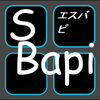I'm looking for people who are good with IDA Pro, C and ARM11 assembly to decompile SmileBASIC. Why? So we can finally figure out how SmileBASIC generates the footer on saved files. This could also pave the way for modifications of SmileBASIC. If you're interested in helping, send me a site PM or try and get me on chat.
This is in the name of cross compatibility with a computer, and not for Piracy I assume.
What kind of modifications would this allow? Because we don't want Nintendo to freak out, if we enable too much, and take Smile BASIC down from sale.
Isn't there a Japanese SmileBASIC already out? I kind of seen one but cannot find one, but I am sure PetitProfessor has it.
Yeah, that's 3DS footage. There is no PC version of SmileBASIC, other than that unofficial interpreter linked earlier, but it has some bugs, and some stuff isn't implemented at all, like audio.
Call me dense, but I don't understand what you are looking for. What is this footer, and what exactly does understanding it buy you?
If this is for user created files, then how does screaming a file over with Petite Modem not help? You can get all the user created files you want that way. Is the footer just the id of the user who wrote the program?
If instead you want to edit the SmileBasic executable... well that might be a cryptographically signed key. In fact I would be surprised if every program on the 3DS isn't cryptographically signed. Oh and that would be copyright infringement too. Please don't get SmileBasic taken down on the eShop again.
If you want to code on the PC there are other languages and versions of Basic. There is also a large learning curve of course.

